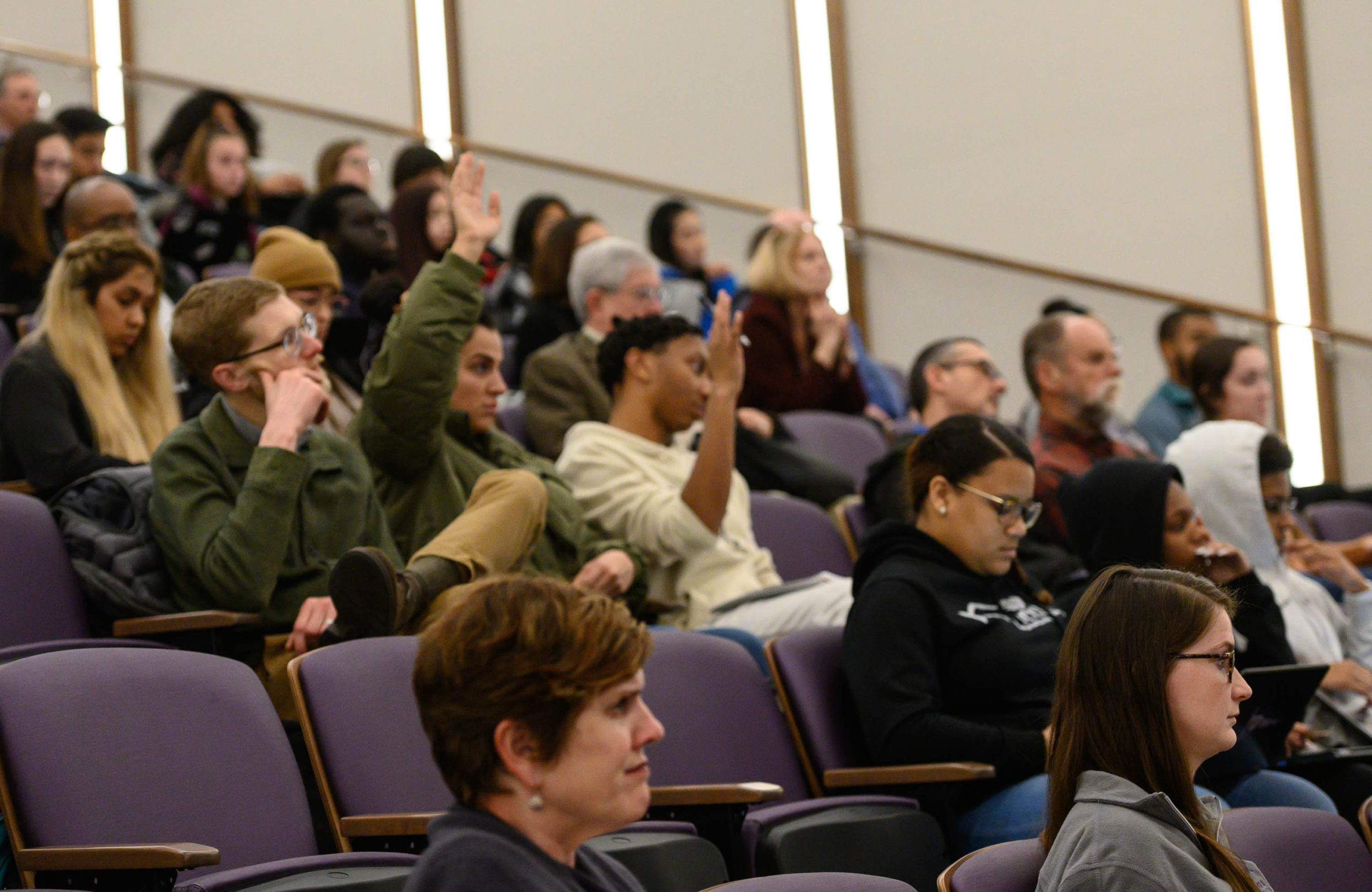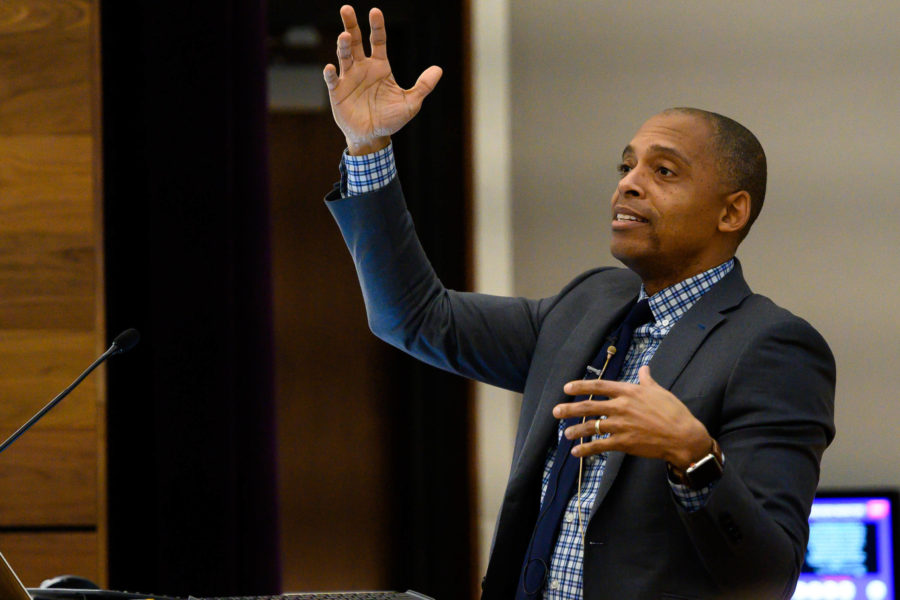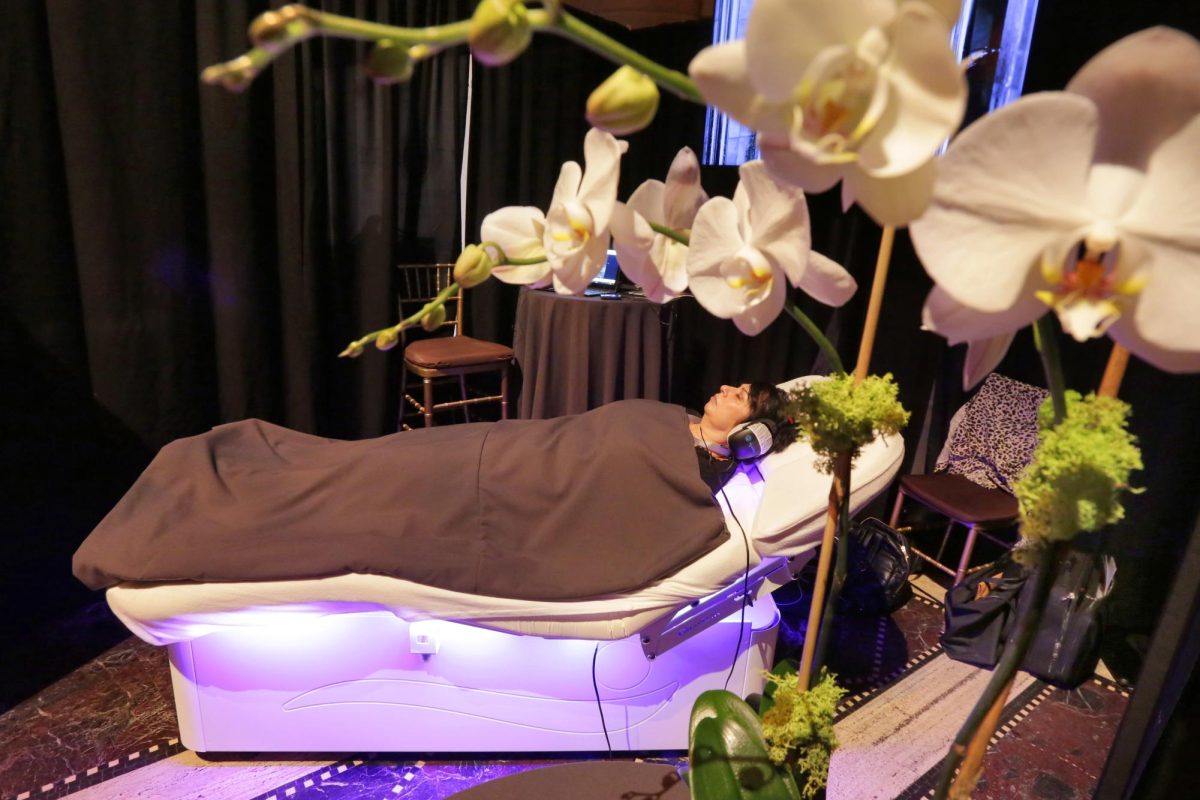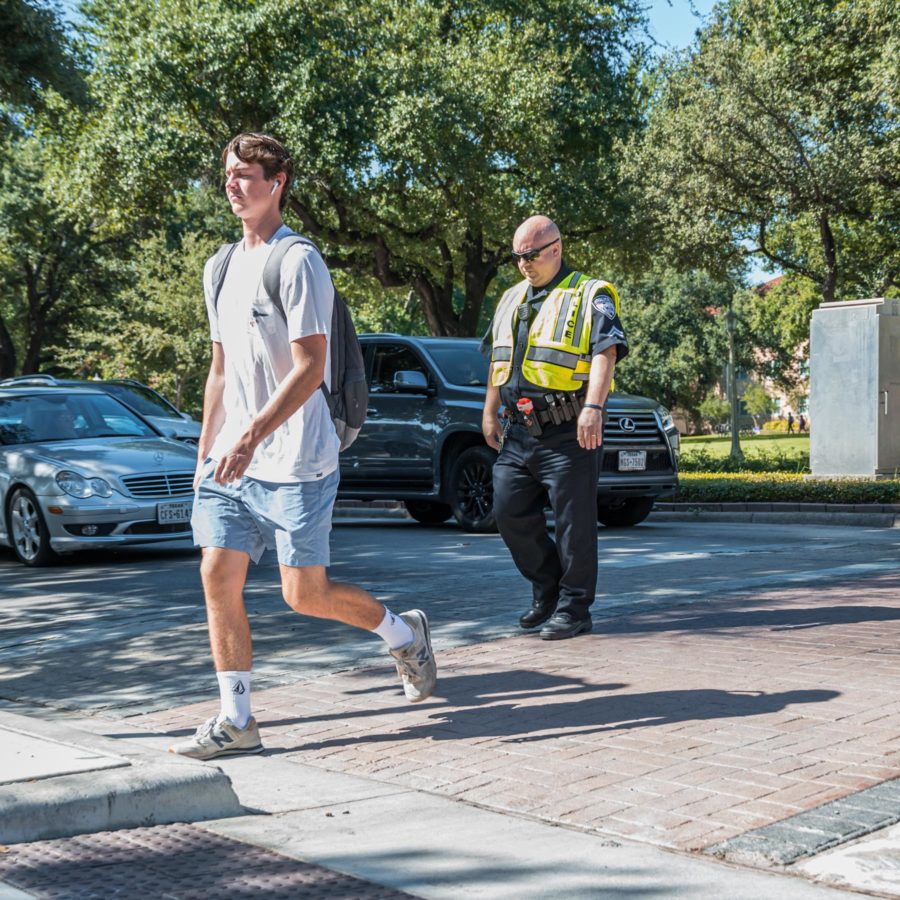
A Harvard professor discussed the racial criminalization of African Americans throughout U.S. history in an event Wednesday organized by the comparative race and ethnic studies (CRES) department.
Dr. Khalil Muhammad, a professor of history, race and public policy at Harvard’s John F. Kennedy School of Government, said the topic is important to discuss because crime statistics are the primary way America defines black people as inferior.
He also said he teaches his students there is no way to understand any part of American history without understanding race and racism.

“I hope students feel good about the work they’re doing, the struggles that they’re battling, and that they know they’re not alone,” Muhammad said. “That they know even at the richest, the most prestigious, the oldest university in this country, that there are people like me fighting the same fight.”
Muhammad is a Chicago native and has had many career changes over the span of his professional life. He received his undergraduate degree in economics at the University of Pennsylvania and worked as a public accountant. Following that, he served as the director of the Schomburg Center for Research in Black Culture for five years.
Muhammad said his work prior to being a professor taught him to teach his students that making decisions isn’t just about using their resources, but it is also based on their values.
In his talk, he highlighted the history of Irish and Italian immigrants and how while their crime rates were similar to black people. They were offered help to civilize them, while blacks were met with heavy policing and mass criminalization.
Somairi Tobin, a junior CRES major, said Muhammad’s talk was insightful, teaching him that education prevents repetition. He said he wants to be a part of the fight to break the cycle of oppression.
“It’s a known fact that so much of this legislation is targeted towards African Americans, but the shock is how blatant the associated rhetoric is in its white biases,” Tobin said.
He said he wants to take the same career path as Muhammad because there are many places struggling with cultural preservation and he wants to help.
Muhammad said being the director of the Schomburg Center is his greatest accomplishment because it has become the cultural capital for Black America.
Muhammad, who is also the great-grandson of religious leader Elijah Muhammad, said he was held accountable by civil rights activists like Al Sharpton and John Lewis.
He said while his great grandfather died before he was born, his legacy, along with teachings from his father Ozier Muhammad — a Pulitzer prize-winning photojournalist — greatly influenced his passion for his work.
Muhammad said the reason why he travels around the country, speaking at universities and educating students on the disparities black people have faced throughout history is that students are the future.
“Students are the lifeline to the future,” he said. “Every student that I meet or teach has the potential to be a future leader and to make really important decisions about the kind of society we live in.”
Tobin said we all have a part in ending racism.
“It’s imperative we continue to combat and dismantle these archaic thought processes as well as the legislature they’ve birthed if we want any chance at equity,” he said. “Circumventing instructional racism is a gradual process, but I feel like we all need to take a bigger part in ending it.”







